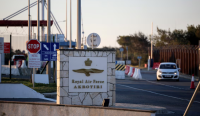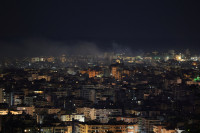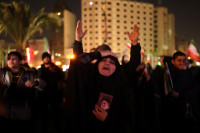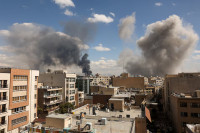World
UN panel investigates Emirati links to seized weapons in Darfur
Mortar rounds seized from the convoy in November in Sudan’s North Darfur region bore the same serial number as those Bulgaria told United Nations investigators it had exported to the UAE in 2019.
Reuters
A UN panel of experts charged with monitoring sanctions in Sudan is investigating how mortar rounds exported from Bulgaria to the United Arab Emirates ended up in a supply convoy for Rapid Support Forces (RSF) militia fighters, according to a letter seen by Reuters.
Mortar rounds seized from the convoy in November in Sudan’s North Darfur region bore the same serial number as those Bulgaria told United Nations investigators it had exported to the UAE in 2019. The serial number was visible in photos and videos posted online by pro-government militia members following the seizure.
Bulgaria told the UN investigators that it had shipped 81 mm mortar rounds with the same serial number to the UAE military in 2019, according to a December 19 letter from Bulgaria’s permanent mission at the UN, reviewed by Reuters.
Bulgaria’s foreign affairs ministry told Reuters that no-one had sought its permission to re-export the munitions to a third party.
“We adamantly declare that the Bulgarian competent authority has not issued an export license for defense-related products to Sudan,” it said.
The UN declined to comment for this report.
The UAE has denied repeated accusations that it is fueling conflict by arming the RSF in its war against Sudan’s army.
The conflict in Sudan has killed tens of thousands of people and driven millions from their homes. The United States determined last year that members of the RSF and allied militias had committed genocide in fighting since May 2023.
Asked by Reuters about the Bulgarian munitions, UAE officials cited the latest annual report from the UN panel of experts, which details findings from its investigations into the flow of arms and money into Darfur.
The report, which was shared with the UN Security Council in April and reviewed by Reuters, has not been made public. Its only reference to the UAE is about its peacekeeping role in Sudan.
The report “makes clear that there is not substantiated evidence that the UAE has provided any arms or related support to the RSF,” UAE officials told Reuters.
The UN panel documents the November munitions seizure in its annual report. A pro-government militia intercepted RSF vehicles transporting mortars and other munitions and posted video and photos of weapons it seized. The investigators’ report does not discuss the munitions’ o
But letters exchanged between Emirati officials and the UN panel show that investigators continue to examine the UAE’s role in the conflict.
The letters, reviewed by Reuters, show that Emirati authorities declined to provide manifests that UN investigators requested for 15 different flights originating from UAE airports and landing in Amdjarass and N’Djamena in Chad.
On November 26, the UN panel wrote to Emirati authorities to request cargo manifests for the flights. In a December 10 response to the panel, the UAE declined to provide that information, citing an inability to comply with the tight deadline.
Instead, the UAE provided details for about 22 metric tons of items on three flights to Amdjarass, including food, medicine, and civilian vehicles. The items listed in the letter represented about half the capacity of the IL-76 cargo planes, which can carry up to 40 metric tons per trip.
The UAE did not respond to questions from Reuters about the manifests.
A key question for investigators is who is supplying arms to the RSF, which has consolidated its control of much of Darfur in a bloody campaign.
Last month, Sudan filed a case against the UAE at the World Court. The government’s case alleges that the UAE violated its obligations under the Genocide Convention by arming the paramilitary RSF. The court opened hearings last week.
The UAE denies the charge and has argued the court has no jurisdiction to hear it.




 9.83°C Kathmandu
9.83°C Kathmandu














